Our Medical Experts
Meet our expert team of Cardiologist where compassionate care meets expertise.

Hypertension (high blood pressure), is a chronic medical condition in which the blood pressure in the arteries continuously increases. High BP often has no symptoms but can lead to severe health complications. Management of hypertension involves lifestyle changes and medications.
Hypertension is a chronic condition where the force of the blood against the artery walls is consistently too high. High blood pressure is generally defined as a blood pressure reading of 140/90 mmHg or higher. This condition usually develops over several years and can go unnoticed. Despite its asymptomatic nature, high blood pressure seriously increases the risk of severe health problems, including heart disease, stroke, kidney damage, and vision loss.
The causes of hypertension are multifaceted, including genetic factors, poor diet, lack of physical activity, obesity, excessive alcohol consumption, and stress. Managing hypertension typically involves lifestyle changes such as eating a healthier diet, increasing physical activity, reducing alcohol intake, and maintaining a healthy weight and medications that help lower blood pressure. Regular monitoring and adherence to treatment plans are important to controlling this condition and reducing the risk of associated complications.
The normal blood pressure range for adults is typically below 120/80 mmHg. This is the target range for optimal cardiovascular health and is associated with a lower risk of heart disease and stroke. Blood pressure readings are categorized as:
Normal BP Range: Below 120/80 mmHg
Normal BP Range For Men: Below 120/80 mmHg
Normal BP Range For Women: Below 120/80 mmHg
Elevated: Systolic between 120-129 mmHg and diastolic below 80 mmHg
Hypertension Stage 1: Systolic ranges between 130-139 mmHg or diastolic between 80-89 mmHg
Hypertension Stage 2: Systolic ranges between 140 mmHg or higher or diastolic 90 mmHg or higher
Hypertensive Crisis: Systolic ranges over 180 mmHg and/or diastolic over 120 mmHg
It's important to note that blood pressure guidelines may vary slightly depending on individual health conditions and age, so regular monitoring and consultation with a cardiologist are recommended for accurate assessment and management.
Hypertension is often called a "silent killer" because it generally has no noticeable symptoms. However, when blood pressure reaches dangerously high levels, some individuals may experience high blood pressure symptoms such as:
These high bp symptoms can indicate severe or long-standing hypertension that requires immediate medical attention. Regular blood pressure checks are necessary for early detection and management of hypertension, even in the absence of symptoms. If you are experiencing any of the high BP symptoms, consult the cardiologist near you.
Hypertension can be caused by several factors, which are broadly classified into two categories: primary hypertension and secondary hypertension. Here are some common reasons for hypertension :
Genetics: A family history of hypertension (high blood pressure) can increase the risk.
Age: The risk of high blood pressure increases as people age.
Diet: High salt intake and low potassium intake can contribute to high blood pressure.
Physical Inactivity: Lack of regular exercise can lead to weight gain and higher blood pressure.
Obesity: Excess weight increases the demand on the heart and circulatory system.
Alcohol and Tobacco Use: Excessive consumption of alcohol and smoking can increase blood pressure.
Stress: Chronic stress can also contribute to hypertension.
Insufficient Sleep: Poor sleep quality and sleep disorders can increase blood pressure.
Secondary Hypertension: This type of hypertension is caused by underlying conditions. Secondary hypertension appears suddenly and causes higher blood pressure than primary hypertension. Here are some conditions and factors that can lead to secondary hypertension:
Kidney Disease: Diseases of the kidneys can lead to hypertension.
Adrenal Gland Tumors: Conditions like pheochromocytoma can increase blood pressure.
Thyroid Problems: Hyperthyroidism or hypothyroidism can affect blood pressure.
Congenital Heart Defects: Certain heart defects present at birth can cause hypertension.
Obstructive Sleep Apnea: This condition can lead to high blood pressure.
Certain Medications: Some drugs, such as birth control pills, cold remedies, decongestants, over-the-counter pain relievers, and some prescription drugs, can cause hypertension.
Illegal Drugs: Substances like cocaine and amphetamines can lead to hypertension.
Understanding the causes of high blood pressure is important for effective prevention and management. Regular check-ups and lifestyle modifications can help manage and reduce the risk of developing high blood pressure.
Diagnosing hypertension involves several steps to find the reasons for high BP and ensure an accurate and comprehensive assessment of a patient’s blood pressure and overall health. The process typically includes:
Blood Pressure Measurement: The basic method for diagnosing hypertension is measuring BP using a sphygmomanometer. Blood pressure readings are taken at different times to confirm consistently high levels. A single high reading does not necessarily indicate hypertension; multiple readings over some time are needed.
Medical History: The doctor will review the patient’s medical history, including any family history of hypertension or cardiovascular diseases. Lifestyle factors such as diet, physical activity, alcohol and tobacco use, and stress levels are also discussed.
Physical Examination: A thorough physical exam is conducted to look for signs of hypertension and related complications. This includes checking for an enlarged heart, abnormal heart sounds, and swelling in the legs.
Ambulatory Blood Pressure Monitoring (ABPM): This involves wearing a device that measures blood pressure at regular intervals over 24 hours, providing a more accurate picture of blood pressure changes throughout the day and night.
Laboratory Tests: Blood and urine tests are performed to check for underlying conditions that may cause or be affected by hypertension, such as kidney disease, diabetes, and high cholesterol levels.
Electrocardiogram (ECG or EKG): This test records the electrical activity of the heart and can identify abnormalities such as an enlarged heart or previous heart damage.
Echocardiogram (Echo): An ultrasound of the heart may be done to assess the heart’s structure and function, helping to detect any damage or abnormalities related to high blood pressure.
Additional Tests: Depending on the initial findings, further tests such as chest X-rays, ultrasound of the kidneys, or additional heart function tests may be necessary to evaluate the extent of the impact of hypertension on the body.
Accurate diagnosis is important for determining the appropriate treatment plan, which may include lifestyle changes, medications, or addressing any underlying conditions contributing to high blood pressure. Regular follow-up appointments are essential to monitor the condition and adjust treatment as needed.
High blood pressure treatment involves a combination of lifestyle modification and medications. The approach depends on the severity of the condition and the presence of any underlying health issues. Here are the common high bp treatment options:
Lifestyle Modification:
Dietary Modifications:
Reduce Sodium Intake: Limiting consumption of salt helps lower blood pressure. The DASH (Dietary Approaches to Stop Hypertension) diet is generally recommended.
Healthy Eating: Consume fruits, vegetables, whole grains, and lean proteins while reducing saturated fats and cholesterol.
Physical Activity: Engaging yourself in moderate physical activity, such as brisk walking, for at least 30 minutes most days of the week can help lower blood pressure.
Weight Management: Losing excess weight and maintaining a healthy body weight can significantly lower blood pressure.
Limit Alcohol Consumption: Reducing alcohol consumption can help lower blood pressure. Men should be limited to two drinks per day and women to one.
Quit Smoking: Stopping smoking improves overall cardiovascular health and lowers blood pressure.
Stress Reduction: Techniques such as deep breathing, meditation, yoga, and other relaxation methods can help manage stress levels.
Medications: If lifestyle modification alone is not sufficient, medications may be prescribed. Common types of antihypertensive drugs include:
Diuretics: They help the kidneys remove excess sodium and water, reducing blood volume.
ACE Inhibitors (Angiotensin-Converting Enzyme Inhibitors): Relax blood vessels by blocking the formation of a natural chemical that narrows blood vessels.
ARBs (Angiotensin II Receptor Blockers): Relax blood vessels by blocking the action of a natural chemical that narrows blood vessels.
Calcium Channel Blockers: Prevent calcium from entering the heart and blood vessel muscle cells, relaxing the blood vessels.
Beta Blockers: They reduce the workload on the heart and open blood vessels, causing the heart to beat slower and with less force.
Alpha Blockers: They help reduce nerve impulses that tighten blood vessels, allowing blood to flow more freely.
Renin Inhibitors: Slow down the production of renin, an enzyme produced by the kidneys that starts a chain of chemical steps that increases blood pressure.
Monitoring and Follow-Up: Regular monitoring of blood pressure, either at home or through frequent visits to a cardiologist, is essential to ensure that treatment is effective. Adjustments to the treatment plan may be necessary based on how well the blood pressure is controlled and the presence of any side effects from medications.
Combining lifestyle changes with medications can effectively manage hypertension and reduce the risk of complications such as heart disease, stroke, and kidney damage.
Preventing hypertension involves adopting a healthy lifestyle to maintain optimal blood pressure levels and reduce the risk of developing high blood pressure. Here are some effective strategies for hypertension prevention:
Healthy Diet:
Reduce sodium intake
Follow the DASH diet
Increase potassium intake
Regular Physical Activity:
Aim for moderate-intensity exercise for 150 minutes per week
Include muscle-strengthening activities
Limit Alcohol Consumption:
Men: up to 2 drinks per day
Women: up to 1 drink per day
Regular Blood Pressure Checks:
Monitor blood pressure regularly
Routine medical check-ups
Educate Yourself: Understand the risk factors and consequences of hypertension.
Limit Caffeine Intake: Moderate caffeine consumption.
Proper Sleep: Get a minimum of 7-9 hours of quality sleep every night.
Healthy Social Habits: Engage with support systems including friends, family, and support groups.
Quit Smoking: Stop smoking to improve cardiovascular health.
Manage Stress: Practice relaxation techniques such as deep breathing, meditation, and yoga.
Maintain a Healthy Weight: Achieve and maintain a healthy body weight
Hypertension has a range of risk factors that can increase an individual’s likelihood of developing the condition. These risk factors can be categorized into following factors:
Non-Modifiable Risk Factors:
Age: The risk of hypertension increases with age, particularly after the age of 45 for men and 65 for women.
Family History: A family history of hypertension increases the chance of developing the condition, suggesting a genetic predisposition.
Gender: Until about age 64, men are more likely to develop hypertension. After the age of 65, women are more likely to develop high blood pressure.
Modifiable Risk Factors:
Other Contributing Factors:
Understanding these risk factors can help individuals take preventive measures and make lifestyle changes to reduce their risk of developing hypertension and its associated complications. Regular monitoring and consultation with healthcare providers are essential for managing and mitigating these risks.
For those seeking top-notch hypertension treatment in Gurgaon, Miracles Apollo Cradle/Spectra stands out as a premier choice. Renowned for its comprehensive healthcare services, the hospital boasts a team of highly experienced and the best cardiologists in Gurgaon who are dedicated to managing and treating hypertension effectively. With state-of-the-art facilities and a patient-centric approach, the hospital ensures personalized care tailored to each patient's needs. Whether you require routine blood pressure management, diagnostic evaluations, or specialized treatment plans, our hospital combines expertise with compassion to achieve optimal health outcomes. Visit us today to experience world-class healthcare and take proactive steps toward controlling hypertension for a healthier future.
Meet our expert team of Cardiologist where compassionate care meets expertise.
Inspiring Journeys: True Patient Stories
Miracles Apollo Cradle is a leading Maternity Hospital Gurgaon. We strive to give the best care to our patients.
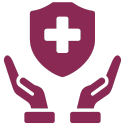
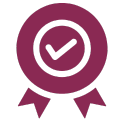

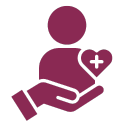
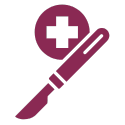
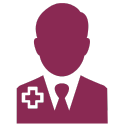
Learn about the world class health care we provide
Source for Expert Advice and Health Tips
Learn about the world class health care we provide
To reduce hypertension, reduce sodium intake, adopt a healthy diet, exercise regularly, maintain a healthy weight, limit alcohol, and quit smoking.
Generally, a normal blood pressure reading is below 120/80 mmHg for adults. Blood pressure norms can vary slightly by age.
The best treatment often includes lifestyle changes such as diet, exercise, weight management, and medications such as diuretics, ACE inhibitors, or ARBs, tailored to individual needs.
Hypertension can result from conditions like kidney disease, thyroid problems, or certain medications.
Dangerously high blood pressure is typically defined as a reading of 180/120 mmHg or higher. Immediate medical attention is needed to prevent any serious complications.
For a sudden rise in blood pressure, ensure the person rests comfortably, encourage deep breathing, and seek medical assistance if symptoms persist or worsen.